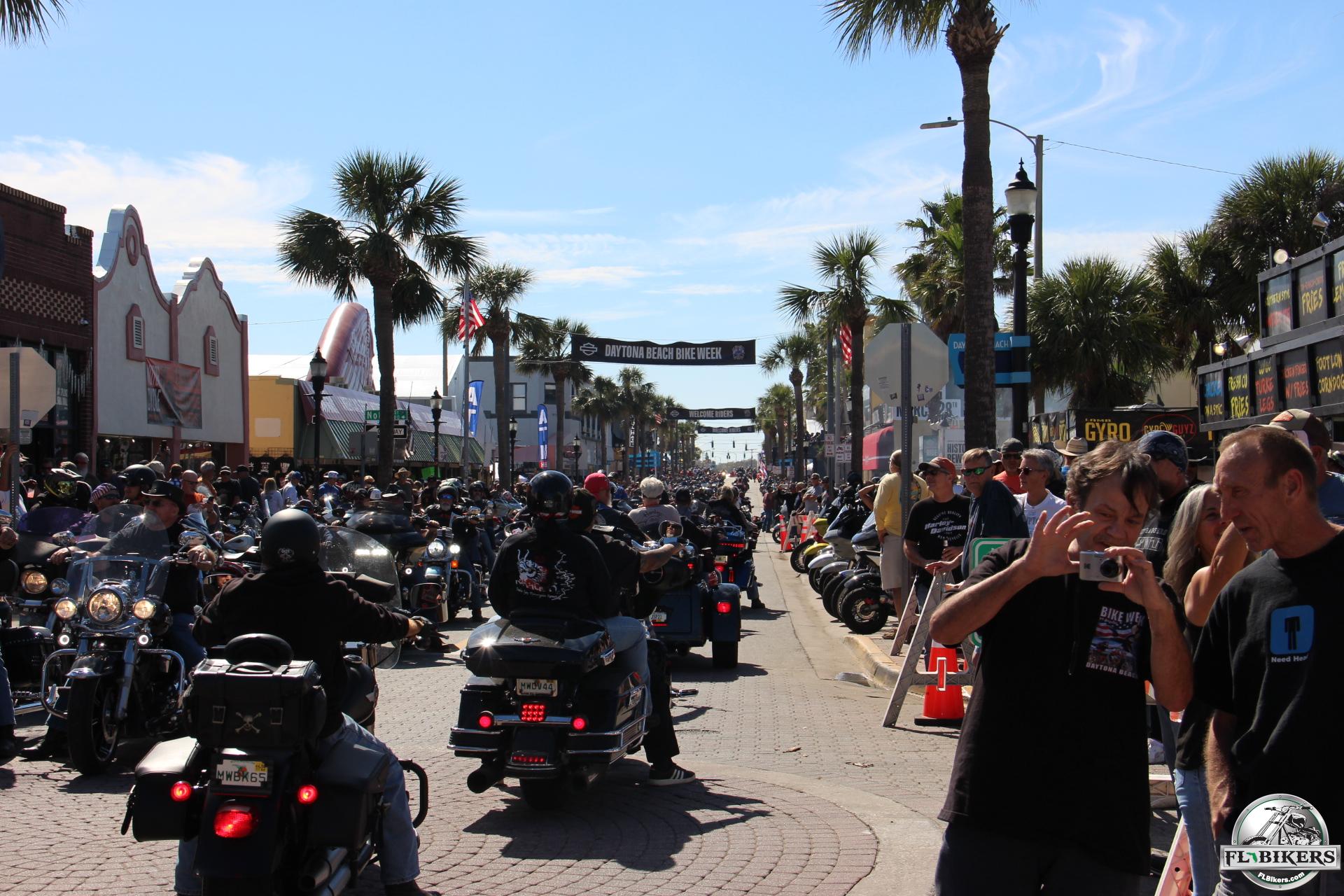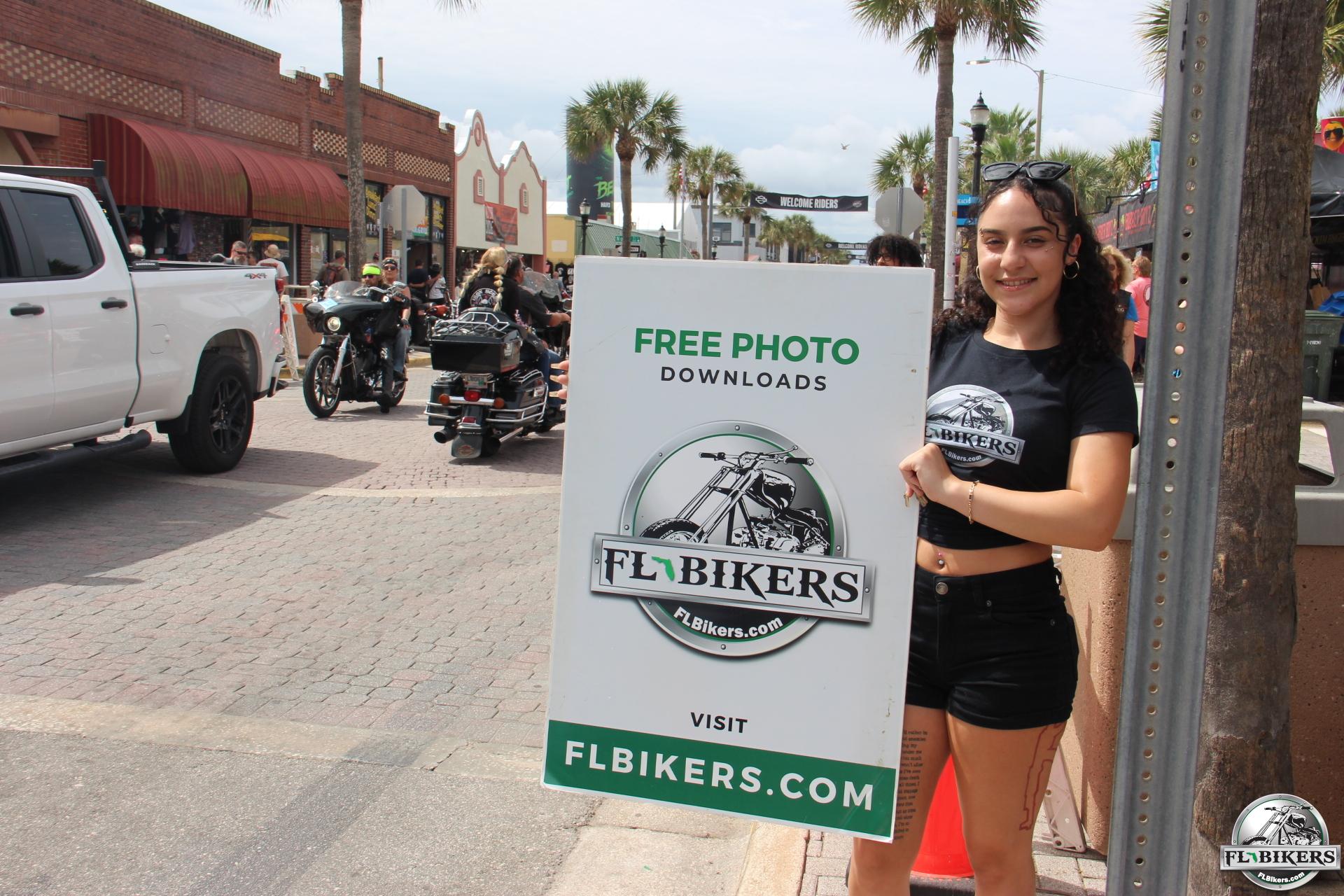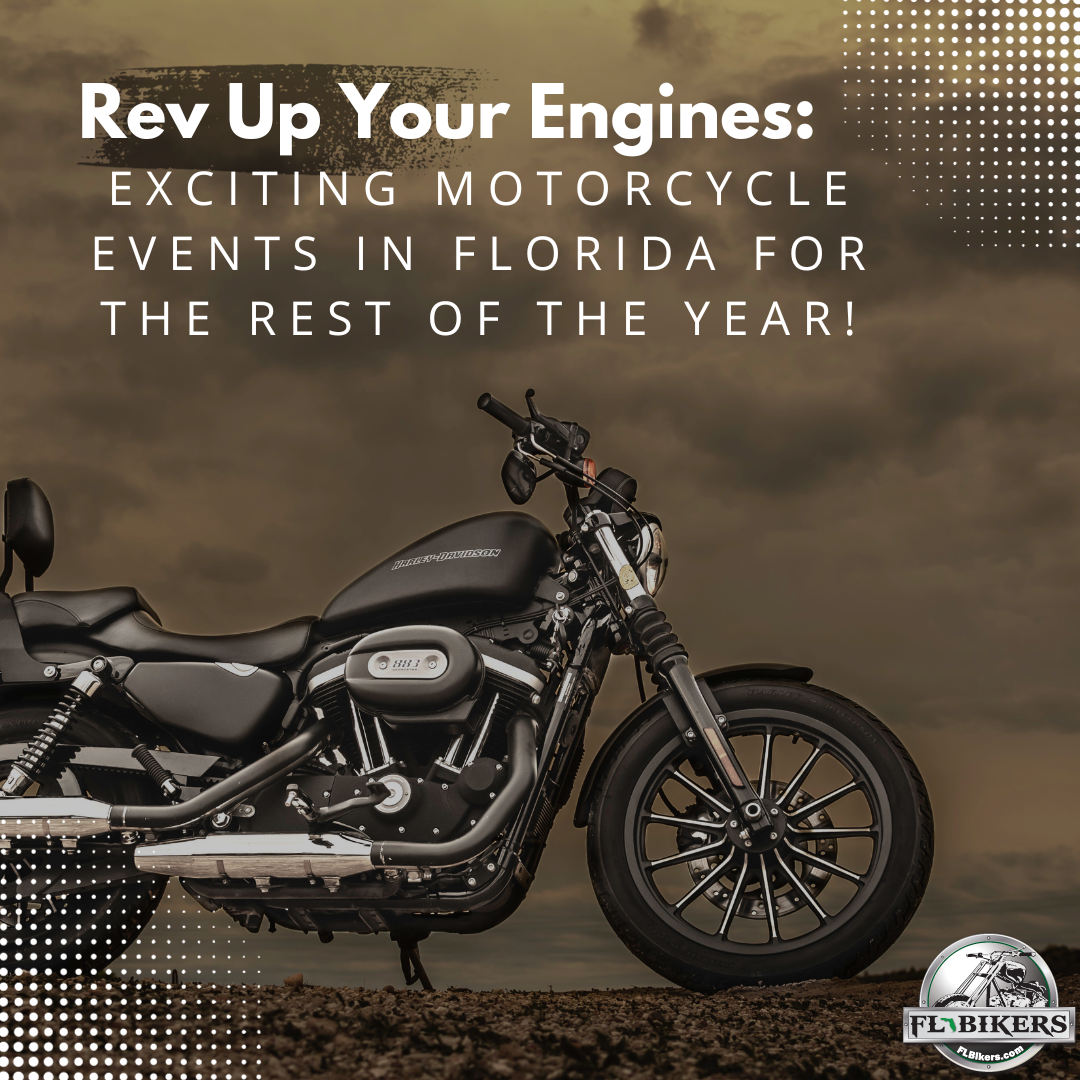These FAQ’s come to FLBikers courtesy of the Florida Department of Highway Safety and Motor Vehicles.
Motorcycle Endorsements
When do I need a motorcycle endorsement?
Florida law requires a motorcycle endorsement on your license when the rider operates any two or three-wheeled motorcycle whose engine is more than 50 cc.
What are the requirements to obtain a motorcycle endorsement?
Riders must hold at least a regular Class E operator’s license. If the rider is under 21-years-old than the rider must show proof that they completed a motorcycle safety course. For more information including additional requirements and fees, click here.
What is a motorcycle Third-Party Tester?
A motorcycle third-party tester is an entity that has the ability to provide the same motorcycle knowledge and skill tests as the state. These third-party testers have signed an agreement with the Florida Department of Highway Safety and Motor Vehicles and fees vary by location. Passing one or both of the tests provided by a third-party tester grants the rider the ability to have one or both of the tests waived at the DMV. For additional information, click here.
What if I bring a three-wheel motorcycle or a sidecar motorcycle for my skill test?
In the event that a three-wheel motorcycle or sidecar motorcycle is present at the skill test, a variation of the regular skill test will be used and the rider will be restricted to “Three-wheel Motorcycles Only.” For additional information, click here.
Temporary Instruction Permit For Motorcycle Operations
What are the requirements for a Temporary Instruction Permit?
In order to hold a temporary instruction permit the rider must be at least 21-years-old, hold at least a Class E license and pass the motorcycle knowledge test at a driver license officer or tax collector office that issues licenses. For a list of additional requirements, click here.
Motorcycle Only License
Show Content
Be at least 16 years old, and if under 18, hold a Learner’s License for one year with no traffic convictions.
Pass the same knowledge test as for a regular Class E operator’s driver license.
If under 21 years old, show proof of completion of a motorcycle safety course to a driver license office or tax collector office that issues licenses.
If at least 21 years old, show proof of completion of a motorcycle safety course to a driver license office or tax collector office that issues licenses OR pass the motorcycle knowledge and skills tests at a driver license office, tax collector office, or third-party tester that offers such tests.
Your license will be restricted to operating “Motorcycles Only.”
NOTE: Tax collector offices charge an additional $5.25 fee for driver license transactions.
Show Content
Yes, by passing the regular driving test in a regular four-wheel motor vehicle.
Motorcycle Rider Courses
What are the Basic Rider Course enrollment requirements?
In order to enroll in the Basic Rider Course a rider must hold at least a Learner’s Driver License and have a basic working knowledge of traffic law, road signs, general “road rules”.
What about the Motorcycle Safety Foundations’ experienced Rider Course Suite?
In order to enroll in the six-hour ERC Suite to add motorcycle endorsements to your license the rider must be at least 21-years-old, bring their own motorcycle (or have written permission to use another motorcycle), have their own helmet and riding gear. For additional information about the ERC Suite, click here.
Will Florida accept rider course completion cards from out-of-state rider courses or the military and waive testing in Florida to add motorcycle endorsements to existing or first time Florida licenses?
Yes! As long as the rider course completion card, or certificate of completion, indicates that the rider course curriculum was sponsored, or approved, by the Motorcycle Safety Foundation the state will definitely accept it.
Will other states accept Rider Course course completion cards issued by Florida schools and waive tests?
The answer here is yes and no. Some states will accept the MSF card from Florida schools and waive both tests, while other states will only waive certain skill tests. In order to find out if your state in question will accept Florida’s completion cards, contact the state’s licensing departments.
What are the motorcycle helmet requirements in Florida?
Any motorcyclist in the state of Florida under the age of 21 is required by law to wear a helmet. Any rider over the age of 21 is not required to wear a helmet if they are covered by an insurance policy of at least $10,000 in medical benefits for injuries incurred as a result of a crash while operating, or riding on, a motorcycle.
Are you required to wear eye protection to operate a motorcycle? How about as a passenger?
Anyone who operates a motorcycle is required by law to wear eye protection regardless of age. While passengers are not required by law to wear eye gear, it is highly suggested for safety reasons.
Military Members Outside Of Florida
I am stationed outside of Florida, how can I add a motorcycle endorsement to my Florida license?
To add a motorcycle endorsement to a Florida license while out of state, the military motorcycle rider must first complete a military motorcycle rider course, or Motorcycle Safety Foundation sponsored rider course. For a full checklist of what to do after completing the course, click here.
Insurance For Motorcycle
What do I do if I am in an accident?
To start, it is critical that you remove your motorcycle from the road and approaching traffic. This is to ensure safety for both yourself and other drivers on the road. If it is impossible to remove your motorcycle, remove yourself from harm’s way and immediately contact the police. If you or your passenger have been injured seek immediate medical attention. If possible, be sure to obtain contact information from any eye-witnesses available to give to the police who investigate the scene.
The second most important action is to exchange both contact and insurance information with any individuals involved in the accident. It is also wise to document the accident and all damages with your smartphone, as this evidence may help in your insurance claim. If you are injured it may be wise to contact a qualified motorcycle attorney prior to contacting your insurance company to report the accident. Be sure to maintain records of all medical bills and document damage to your motorcycle.
Is insurance required for motorcycles in Florida?
While it is encouraged for motorcycle riders in any state to have insurance, it is not always required. In the event that a motorcycle operator is charged in a crash with injuries, the owner will be financially responsibly for any bodily injury and property damage of the other party. If no liability coverage was purchased in the first place, bodily injury/property damage liability insurance must be purchased and kept for three years to avoid license and tag suspension.
How much does motorcycle insurance cost?
Motorcycle insurance rates vary, depending on a variety of factors. For an accurate rate, drivers should contact their insurance company for a free quote. Factors that determine insurance rates include the type and cost of the motorcycle and the driver’s history. Many experts recommend that you shop motorcycle insurance every year. Typically insurance companies have increases every year and many times you can realize a savings by switching insurance companies. It’s best to shop independent insurance agents as well as online sources to ensure you are getting the most competitive quotes.
How do I lower my rates?
To get the best rates possible on your insurance premiums, display and maintain safe driving habits. This proves to insurance companies that you are a low-risk driver and you will likely receive various discounts and benefits. One of the rarely discussed issues with the setting of insurance rates is your credit score. Being aware of your driving record and credit score can help you find the best rates. Contact multiple companies including independent insurance agents and online resources to find the best rates for your circumstances.
What type of coverage do I need?
In general, motorcycle drivers should select insurance plans that include the most options for the greatest coverage, while still being cost-effective. While policies differ from driver to driver, it should include coverages for collision, liability, comprehensive and accessory at the very least. One of the insurance coverages which is most often overlooked is uninsured motorist coverage. Insurance agents often are quick to remove this coverage or not even mention it as the insurance companies don’t want this important coverage pushed. This coverage protects you and your loved ones in the event that the driver who causes an accident is uninsured. In Florida there are a significant number of drivers who ignore the law and fail to carry even the minimum insurance coverage. In the motorcycle community, accidents can result in significant injuries and it makes good sense to carry more than just the legally required amount of insurance coverage.
Can I get personal injury protection (PIP) Coverage on my motorcycle?
While many insurance companies offer a sort of personal injury protection (PIP) coverage for their motorcycle policies, this type of coverage is not ordered by Florida PIP laws that are required for car insurance policies. Also, in the event you are hit by an uninsured driver, uninsured motorist coverage protects you from having to personally pay for your medical bills. Contact your insurance agent for details on PIP and uninsured motorist coverage available for your motorcycle policy.
What about motorcycle passenger insurance?
As a South Florida biker, if you plan on carrying passengers it would behoove you to ask your insurance carrier about the need for passenger insurance coverage.
Is there a minimum age requirement for motorcycle passengers?
While Florida law does not address a minimum age for passengers, other laws may apply to the age of the passenger. For example, if an accident were to occur it could be viewed as “endangering a minor.”
What About Motorized Scooters?
To legally operate a scooter, moped or other 2-3 wheeled, small engine vehicle a rider must at least have a class E driver’s license. The vehicle must also be registered and have the proper tags. While people under the age of 16 are not legally permitted to drive a moped, they are allowed to ride along as a passenger as long as they have the proper headgear securely fastened as per the state’s rule.
Is there a motorized vehicle you can operate on a public roadway in Florida without a driver license?
Yes! Any rider 16-years-old, or older, may legally ride a bicycle that is propelled by a combination of human power and an electric motor that cannot exceed 20 mph on level ground.







